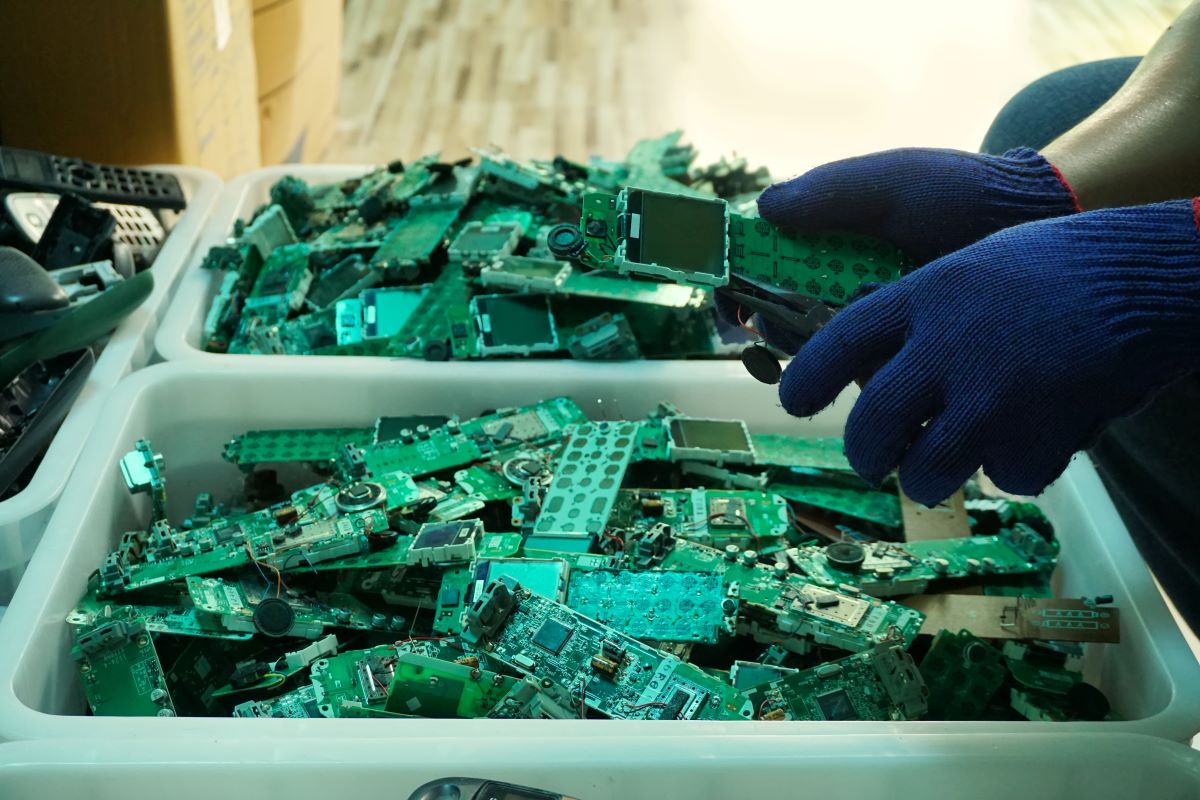
A surge of young electronics-recycling firms is reshaping ITAD, bringing AI, robotics and data tools that push the sector beyond logistics toward more strategic, compliance-driven work. | Damrong Rattanapong / Shutterstock
A wave of new entrepreneurship is helping rejuvenate electronics end-of-life management, as highlighted at a workshop during the 2025 E-Scrap Conference in Grapevine, Texas.
This year’s gathering revealed interesting findings that shed light on the industry’s ongoing evolution and its leadership’s ambitions for a more strategic and technologically advanced future.
New generation: 33% young companies
One of the signals of ongoing evolution is the prominence of startups and younger businesses in the electronics recycling and ITAD sector. In a live poll during the workshop, 33% of attendees reported that they work for companies founded within the past five years.
This surge of “next generation” firms is stimulating a wave of energy focused on data, sustainability, critical resource recovery and building the infrastructure required to process billions of retired tech assets from global users annually. These new entrants are driving new industry innovation and suggest a future where circularity principles will be core to business design.
Many of the startups entering the electronics recycling and ITAD space are putting advanced technologies like artificial intelligence, robotics and specialized software at the core of their business models, in contrast to the previous generation of entrepreneurs who were focused on building logistics, asset treatment and enhancing certifications.
These new firms are developing tools that streamline processes such as device disassembly, materials sorting and asset refurbishment, ultimately seeking to drive gains in operational efficiency. By leveraging computer vision, automation and real-time data analytics, these startups help reduce contamination, improve throughput and lower costs. Their focus on technology signals a promising future for scalable solutions and greater circularity throughout the sector.
Industry perception: still seen as logistics, but shifting
Despite advancements, industry perception remains split between traditional logistics/disposal and more strategic functions. Polling results presented at the workshop revealed that over 41% of ITAD professionals still characterize their sector as mainly providing logistics and disposal – a view representative of legacy operations.
Meanwhile, 26% now recognize the growing importance of compliance and auditing capabilities, reflecting the sector’s response to mounting regulatory requirements and data protection mandates. Strikingly, 16% of respondents believe ITAD work has advanced to the status of a data-driven, strategic or business-aligned function. This emergent cohort is pointing the way to a more value-centric, tech-enabled vision of asset disposition.
More stories about computers

